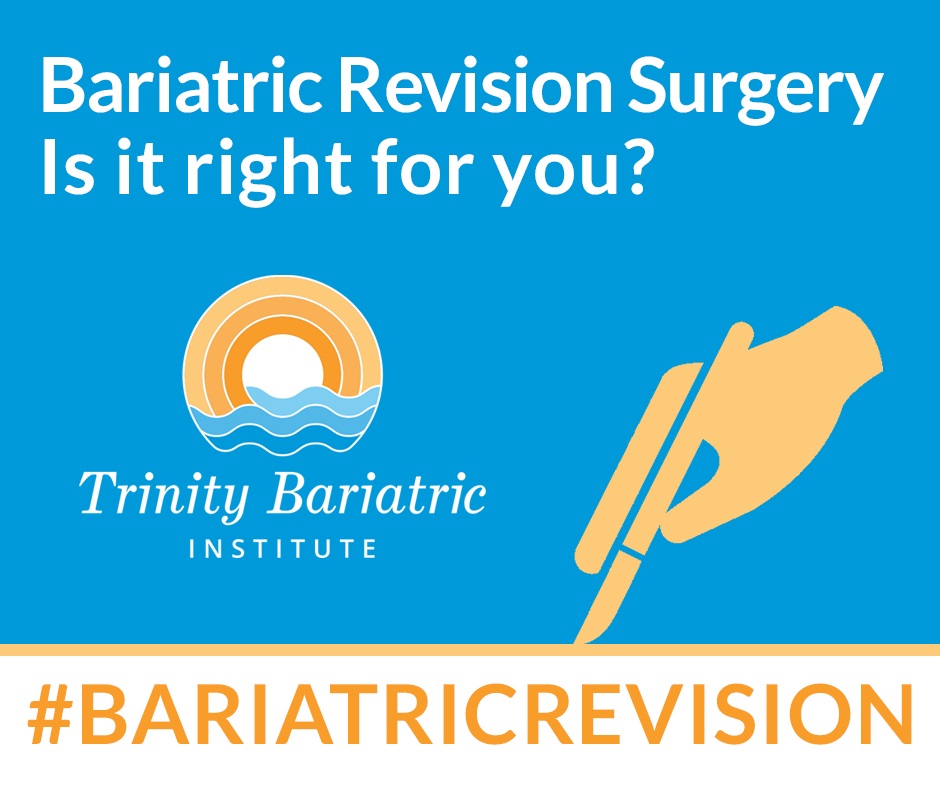 How to Push Past a Weight Loss Plateau
How to Push Past a Weight Loss Plateau
Initially after weight loss surgery, it can be fairly easy to lose a significant amount of weight. This is mostly due to the reduced portion sizes and favorable changes in hormones that control hunger and satiety following surgery. However, weight loss can slow down or even stabilize at the 12-18 month post-op mark, as your body adjusts to its new normal.
It’s important to keep in mind that weight, or the number you see on the scale, is influenced by several factors, including fat mass, muscle mass, contents of the GI tract, and water retention. In addition, intake and physical activity also influence weight, so it’s common to see fluctuations in weight and overall weight loss for these reasons.
Although a majority of patients will experience this to some degree after surgery, a weight loss plateau can certainly be worrying or discouraging after you have already come so far. It is fairly common to wonder why weight loss has slowed or stalled and question if something has gone wrong. Keep reading for tips from Trinity Bariatric Institute’s Physician and Registered Dietitian on pushing past a weight loss plateau.
Focus on protein foods first and non-starchy vegetables second. Dietitian Jessica recommends following the bariatric plate method after surgery to ensure that you are meeting your protein needs and getting a variety of vitamins and minerals through different food sources. Once you are consistent with putting adequate protein and non-starchy vegetables on your plate, then you may consider small portions of whole grains or starch. Usually within the first six months after surgery, it is recommended to leave whole grains or starch off of your plate to maximize weight loss and prevent occurrences of food intolerance. After six months, however, most patients can eat 2 tablespoons (only two or three small bites!) of whole grains or starch at one time, but only after you meet your protein and non-starchy vegetable goals first.
Drink enough water. Generally, the recommended amount of daily water intake for most people is 64 ounces or more, especially in hotter environments or with frequent exercise. It is important to wait at least 30 minutes before and after eating to resume drinking. If you struggle with getting enough water in every day, Dietitian Jessica recommends setting reminders to sip water or other zero-calorie, non-caffeinated, non-carbonated fluids throughout the day. If you generally don’t like the taste of water, try adding in fresh fruit or a few drops of a sugar-free liquid sweetener for more flavor, too.
Get adequate sleep and manage stress. Sleep and stress both play a huge role in weight management. Inadequate sleep and high stress levels have been linked to poor nutrition choices and weight regain after bariatric surgery. Dietitian Jessica recommends getting into a regular bedtime routine and finding activities to manage stress, whether it includes meditating, journaling, exercising, seeking additional support from loved ones or a therapist, or even a combination of activities.
Find exercise that you enjoy and be consistent. The goal for consistent exercise is at least 150 minutes of moderate intensity exercise per week, as recommended by several health organizations. Dr. Dyslin and Dietitian Jessica recommend opting for a combination of cardiovascular exercise and strength training, to get your heart rate up and build muscle mass.
Track your food intake. There are several applications, whether on your computer or phone, to log your daily food intake. Dr. Dyslin recommends using Baritastic, My Fitness Pal, or Fit Bit to track calories and protein. Everyone will have different calorie and protein needs after surgery, which is why an individual approach is important. Dietitian Jessica knows that one size does not fit all, especially when it comes to nutrition. She notes that many of her patients who are most successful both before and after surgery do track their food and beverage intake. It can be really easy to forget about the sips, bites, and snacks throughout the day, but those calories really do add up and could potentially stall further weight loss.
Seek guidance from your Bariatric Surgeon and Registered Dietitian. Discussing your current diet, physical activity level, and weight loss goals with both Dr. Dyslin and Dietitian Jessica is always a great idea. They can offer support and additional ideas for success as you continue to navigate a huge lifestyle change following weight loss surgery.
Call 817-832-7227 to set up your appointments and discuss your health goals in detail.
Article provided by Jessica Wiklund, MS, RD, LD • Registered Dietitian at Trinity Bariatric Institute, PLLC
Resources: https://asmbs.org/patients/life-after-bariatric-surgery


